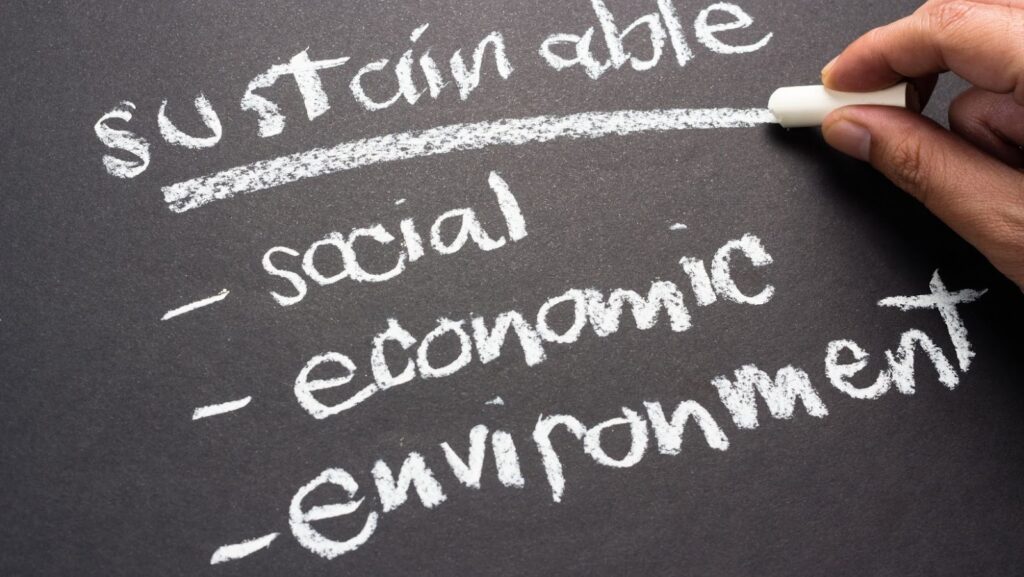In today’s fast-paced world, the concept of self-sustainable living is gaining traction as more individuals seek a harmonious balance between their lifestyle and the environment. This approach isn’t just about reducing one’s carbon footprint; it’s a way of life that embraces resourcefulness, independence, and a deeper connection with nature. As people become increasingly aware of environmental issues, the desire to live sustainably is transforming from a niche interest into a mainstream movement. Online forums connect like-minded individuals, facilitating the exchange of ideas and support. Networking within communities strengthens collective efforts towards sustainability, promoting broader adoption of eco-friendly practices. Self-sustainable living involves practices like growing your own food, utilizing renewable energy sources, and minimizing waste. It’s a lifestyle choice that not only benefits the planet but also promotes personal well-being and financial savings. By adopting these practices, individuals can create a resilient lifestyle that withstands the uncertainties of modern society. As more people explore this rewarding path, the journey towards a sustainable future becomes a collective endeavor, paving the way for a healthier planet and a more fulfilling life.
Self Sustainable Living
Self-sustainable living requires individuals to be resource-efficient and environmentally conscious. It focuses on developing systems that support an independent lifestyle while preserving natural resources. Self-sustainable living refers to a lifestyle where individuals or communities create and manage their resources to diminish reliance on external systems. Key principles include autonomy, environmental stewardship, and resilience. Autonomy enables people to produce essential goods, such as food and energy. Environmental stewardship emphasizes the protection and responsible management of natural resources. Resilience strengthens the capacity to adapt to challenges, ensuring that systems remain functional under various conditions. Effective waste management is crucial in self-sustainable living, reducing the negative impact on ecosystems. Techniques like composting organic waste transform food scraps into valuable soil nutrients. Recycling processes extend the life cycle of materials like paper, glass, and metals. Repurposing items encourages creative solutions, reducing the need for new resources and landfill contributions. These practices contribute to a cleaner environment and exemplify the principles of resourcefulness and mindfulness essential to sustainable living.
Tools and Resources for Self Sustainable Living
Self-sustainable living relies on diverse tools and resources to enhance efficiency and self-reliance. These include technological innovations and community networks that support ecological living principles. Technology aids self-sustainable living by providing effective solutions for managing resources. Solar panels generate renewable energy for homes, decreasing dependency on fossil fuels. Rainwater harvesting systems collect and store rainwater, reducing the strain on natural water bodies. Vertical gardens use minimal space to produce food, making them ideal for urban dwellers. Composters turn organic waste into valuable fertilizer, supporting a zero-waste lifestyle. Innovative technologies such as these contribute significantly to sustainable practices. Communities play a vital role in fostering self-sustainable living. Local cooperatives provide resources like seeds and gardening tools, enabling individuals to cultivate their own food. Knowledge-sharing platforms offer workshops on sustainable practices, helping individuals learn skills such as canning and permaculture. Online forums connect like-minded individuals, facilitating the exchange of ideas and support. Networking within communities strengthens collective efforts towards sustainability, promoting broader adoption of eco-friendly practices.
Challenges and Solutions in Self Sustainable Living
Self-sustainable living offers numerous benefits, but it also involves specific challenges. Addressing these obstacles strategically enhances the sustainability journey. Resource limitations often restrict self-sustainable living efforts. Limited space can hinder growing abundant food or setting up energy systems. Financial constraints may also impede the purchase of high-efficiency technology or sustainable materials. Furthermore, knowledge gaps about sustainable practices frequently lead to less effective implementation. Environmental factors, like climate or soil quality, can affect the success of sustainable endeavors, such as gardening and composting. Access to water sources is another critical hurdle, especially in arid regions, which complicates irrigation and water conservation efforts. Managing these obstacles requires creative problem-solving and resourceful collaboration for effective solutions.

